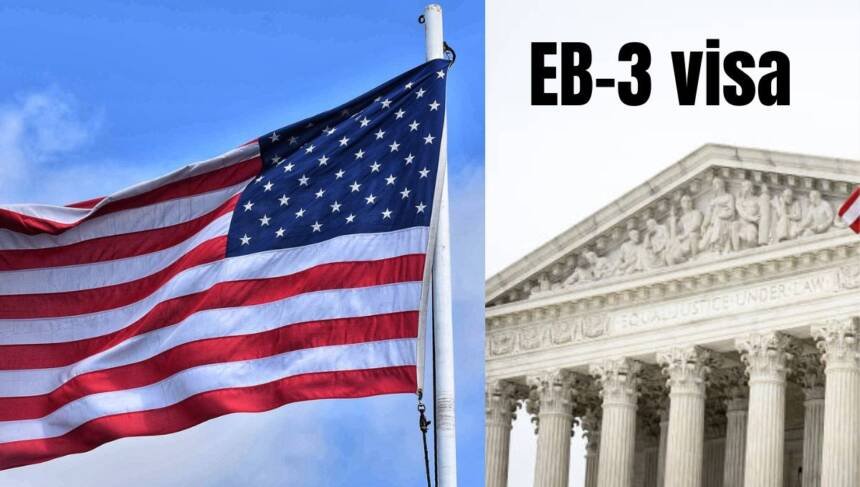In the dynamic landscape of U.S. immigration, the EB-3 visa stands as a crucial pathway for skilled workers seeking employment-based permanent residency.
This visa category is designed to accommodate professionals, skilled workers, and other qualified individuals who possess the expertise and talents that contribute to the growth and prosperity of the American workforce.
What is an EB-3 Visa?
The EB-3 visa, or the Employment-Based Immigration: Third Preference, is an employment-based immigrant visa that allows foreign nationals to obtain lawful permanent resident status (green card) in the United States. It is divided into three subcategories:
- Skilled Workers: This subcategory is for people whose jobs require at least two years of training or work experience, not of a temporary or seasonal nature.
- Professionals: This subcategory is for those holding a U.S. bachelor’s degree or foreign equivalent and seeking employment in a position that requires a specific level of education.
- Other Workers: This subcategory is for individuals capable of performing unskilled labor, not of a temporary or seasonal nature, for which qualified workers are not available in the United States.
Who Qualifies for an EB-3 Visa?
To be eligible for an EB-3 visa, applicants must meet specific requirements based on the subcategory they fall under:
- Skilled Workers:
- The job must require at least two years of training or experience, not of a temporary or seasonal nature.
- The applicant must demonstrate the necessary qualifications for the job through relevant education, training, or experience.
- Professionals:
- The applicant must hold a U.S. bachelor’s degree or its foreign equivalent.
- The job offer must be in a position that requires a specific level of education, typically a bachelor’s degree or higher.
- Other Workers:
- The applicant must be capable of performing unskilled labor, not of a temporary or seasonal nature.
- There must be a shortage of qualified workers in the United States for the position being offered.
Employer Sponsorship and Labor Certification
A crucial aspect of the EB-3 visa process is the requirement for employer sponsorship and labor certification. The sponsoring employer must obtain a labor certification from the U.S. Department of Labor, demonstrating that there are no qualified U.S. workers available for the position being offered to the foreign national.
This process involves the following steps:
- The employer must conduct a thorough recruitment process to demonstrate that no qualified U.S. workers are available for the position.
- The employer must file a labor certification application (PERM) with the Department of Labor, providing evidence of the recruitment efforts and job requirements.
- Once the labor certification is approved, the employer can proceed with the immigrant petition (I-140) for the foreign worker.
Related: What Are the Key Steps in the Perm Process?
Expert Opinion and Tips
According to immigration attorney Sarah Peterson, “The EB-3 visa category offers a valuable opportunity for skilled workers and professionals to contribute their expertise to the American workforce.
However, navigating the process can be complex, and it’s crucial to have a thorough understanding of the requirements and procedures.”
Peterson recommends that applicants and sponsoring employers seek professional guidance from experienced immigration attorneys to ensure compliance with all regulations and maximize their chances of success.
Additionally, it’s essential to gather and organize all required documentation, such as educational credentials, work experience evidence, and job offer letters, well in advance to streamline the application process.
Conclusion
The EB-3 visa category plays a vital role in attracting and retaining skilled labor from around the world, contributing to the economic growth and competitiveness of the United States.
By understanding the eligibility requirements, employer sponsorship process, and seeking expert guidance, foreign nationals and employers can navigate the EB-3 visa process effectively and unlock the potential for long-term employment and residency in the United States.



